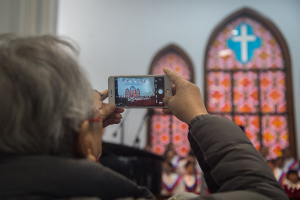Atheists File Suit Against Trump's Order That Lifts Ban on Churches' Political Restrictions
Just hours after President Donald Trump signed his "religious liberty" executive order, an atheist group filed a lawsuit arguing that it is unconstitutional for the government to support religious organizations. It also contends that the president violated the equal protection rights by favoring church groups over secular groups.
In its filing before the Western District Court of Wisconsin, the Freedom From Religion Foundation (FRRF) alleged that the order grants preferential treatment to religious groups by allowing them to endorse political candidates without risking their tax-exempt status while secular organizations must still abide by the law.
Trump signed the order aimed at expanding religious protections that, among other things, soften enforcement of the Johnson Amendment, a law that bars tax-exempt houses of worship from engaging in political speech. It directed the Treasury Department not to take "adverse action" against churches or religious organizations for political speech.
The Internal Revenue Service (IRS) hasn't strictly implemented the Johnson Amendment since its enactment in 1954. This lax enforcement prompted FRRF to sue the IRS in 2014. FRRF eventually dropped the suit when the IRS hired an investigator, but only one pastor has been audited for violating the Johnson Amendment since 2008.
Meanwhile, the Christian nonprofit group Alliance Defending Freedom had been endorsing "Pulpit Freedom Sundays" for years. "We will not allow people of faith to be targeted, bullied, or silenced anymore," Trump said while signing the order on Thursday. "And we will never, ever stand for religious discrimination, never ever," he added.
Tony Perkins, head of the conservative Family Research Council, for his part, said the president wants Evangelicals to help him on issues that are important to him. Meanwhile, Department of Justice spokesman Ian Prior called the order a lawful directive honoring the First Amendment freedoms. "We will vigorously defend the Order and the exercise of religious freedom in America," he said.



























